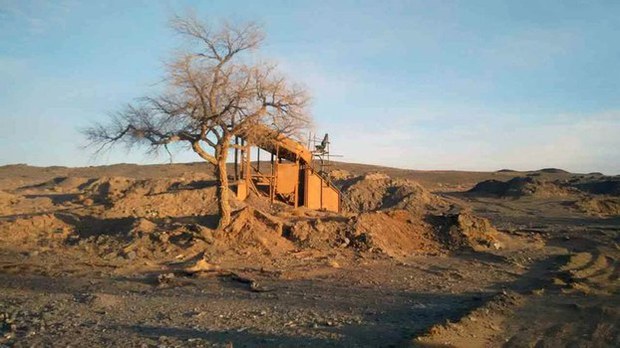
A community of ethnic Mongolian herders in China’s northern region of Inner Mongolia have called on ruling Chinese Communist Party (CCP) leader Xi Jinping to crack down on corruption by local officials.
In a letter, the herders from Inner Mongolia’s Horqin Right Middle Banner said they have lodged official complaints against the banner party committee, the banner government, police department, prosecutor’s office, and other departments over corruption surrounding Xi’s nationwide “poverty alleviation” effort.
The CCP has announced that there would be an end to “absolute poverty” nationwide by the end of 2020.
Absolute poverty in China is defined as the level below which people’s income and food production aren’t able to meet subsistence needs for food, shelter, and clothing.
But China’s nationwide poverty allevation campaign has been linked to forced labor, political “re-education” camps in Xinjiang and Tibet, and the mass relocation of traditional communities to take up low-status industrial jobs in cities, where they lose the safety net of subsistence farming.
The ethnic Mongolians’ open letter includes allegations of fraud, cronyism, corruption, and refusal to engage with complaints filed by local people, according to herder Gao Wulong, who signed it.
“We gathered [signatures from] more than 30 Mongolian herders in more than a dozen towns and villages,” Gao told RFA.
“The main problem is that the poverty alleviation project is fraudulent, and they have taken over the grasslands. Murders have been committed.”
“The herders petitioned, but special police from Horqin Right Middle Banner intercepted them and detained them all,” Gao said. “So filing joint petitions hasn’t really worked.”
Many detained several times
Gao, who has been petitioning for many years, said that most of the herders who have stood up against the takeover of their traditional grazing lands have been detained many times over.
“Most of them have been detained, once, twice, and three times. I was detained three times in 2019,” he said.
Herder Wu Babaoshan said that one of the casualties of recent development of the grasslands under the guise of poverty alleviation has been fragile local ecosystems.
He said his son was set upon by masked men who beat him until they fractured his bones after he contacted a journalist from state broadcaster CCTV to complain about the ecological impact of the “poverty alleviation” program, including the impact on a protected species, the Mongolian yellow elm.
“I asked a CCTV reporter to come and report on the matter,” he said. “The same night the reporter left, some thugs broke into a private home and broke my son’s bones.”
“There has been no progress on the case so far [because] they were in cahoots with the police.”
Officials helping themselves to funds
Nashnurida, a herder from Haoyao village in the same banner, said local officials have been helping themselves to funds intended for poverty alleviation and subsidies, as well as to traditional grasslands needed to support the herders’ livestock.
“The village secretary here — his name is Jin Wanxi — he has so many possessions, and yet so many people here have never received a penny of poverty alleviation funds,” Nashnurida said.
“In 2014, we were supposed to receive subsidies for 40 households out of 83 [but] we never saw the money; it was all diverted by the [local leaders],” Nashnurida said.
The villagers are also taking issue with the razing of 460 mu (30 hectares) of ripe corn crops by a demolition gang led by Baiyinduur party secretary Wang Shuanglin on Sept. 19, 2020.
Wang had also taken over grassland and wooded areas previously used by local communities.
Herder Tong Desheng said Wang had been removed from his post following the incident.
“He was removed from his post within half a month and he is being investigated,” Tong said. “Wang Shuanglin … has the backing of people higher up [in the party].”
Reported by Qiao Long for RFA’s Mandarin Service. Translated and edited by Luisetta Mudie.
Source: Copyright © 1998-2016, RFA. Used with the permission of Radio Free Asia, 2025 M St. NW, Suite 300, Washington DC 20036. https://www.rfa.org.












